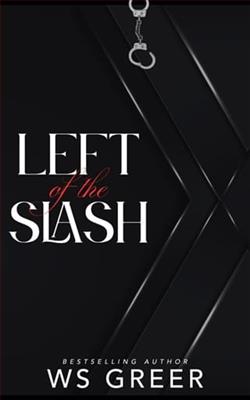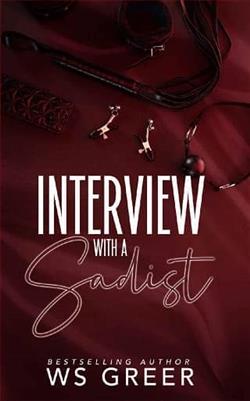without a conductor
to talk to him and tell him stories.
Everyone just uses him the way they used to use me,
when I was just a lamp.
Bertram’s really a very interesting fellow.
He likes to play checkers.
And now I get to see everything.
All of Fairyland-Below, one station after another!
It’s wonderful here, September, you’ll see.
Almost everything is over a hundred years old.
I am so useful.
I am not alone.
And neither is he.
“It must be nice,” said Aubergine suddenly, “to have a friend like that, and like things so much.”
Yes.
“How far is it to Tain, Gleam?” A-Through-L asked, his chest swelled up, full of happiness for her. “So many things in the underworld seem to begin with rather late letters in the alphabet.”
But it was Aubergine who answered. “Tain is Pandemonium’s shadow. It moves with the capital of Fairyland-Above.” She blushed. A creeping frost spread over her feathers. “Or it did. Pandemonium isn’t moving anymore. I’m…I’m sure you all know that. Even before the shadows started falling, Tain was always here, a perfect shadow of the city above. It used to be the Marketplace watering hole. They’d s
nug up all round it and sell anything to everyone. But after a while, the big city stopped moving, and Tain did, too. We’ll be there presently. The Eel wouldn’t let all these people miss the Revel.”
“How can you tell what time it is? There’s no sun!” September said, for she felt she needed a good dose of sunshine. The gloaming and moonlight made her feel heavy and sharp all at once. She missed her usual feeling.
“How do you tell time with the sun?” asked Aubergine innocently. “The crystal moon makes it easy—look up, it’s half past ten in the evening.”
They did look up and saw that a rosy dark shadow shone faintly on the surface of the moon: X. It flickered faintly, not quite bold and true yet.
Gleam tucked her arms and legs back inside her lantern and floated down to discuss something with her enormous friend, and the foursome settled in on the not-at-all-unpleasant skin of the Weeping Eel, which kindly made slightly moist lavender seats and cushions for them. The tea cart came trundling up, but September had had quite enough tea. She asked for a nice mustard sandwich after Ell assured her everything was quite safe when not purveyed by Goblins. She got, instead, a towering confection that might have thought about becoming a sandwich at one point, but had gotten greater ambitions along the way. Sweet ice-colored leaves layered upon dark, smoky spreads and oozing honey-cream, with black plums and blacker figs and very blackest inkfruit peeking out, crushed between slices of something that was decidedly not bread. It was fluffy and wholesome-seeming, but dove-gray, and tasted a little of pastry and a little of cider and a little of snow.
“Do you know,” said September as she ate her sandwich thoughtfully and carefully, sharing with Aubergine and Saturday by turns, “everyone seems to know what they are about but me! When I met the Sibyl, she said that she guarded doorways even when she was a little girl, younger than I! And Glasswort Groof went hunting her Market when she was a maid, and even Gleam has grown up and gotten a profession. I suppose I ought to be thinking about that sort of thing, but I’ve no idea what I shall do when I am grown! I don’t suppose there is much call for Knights or Bishops or Heroines in Omaha or even Chicago. And I’m sure other girls are much better at it than I. I don’t believe I have done anything forever and ever the way the Sibyl did.” September turned to the Night-Dodo, about whom she really was terrifically curious, but had not wanted to be rude. “Do you know what you’ll do now that you’re free of Groof? Not that she was so bad. She seemed rather nice. Because, you know,” she cleared her throat, slightly embarrassed, “where I come from, Dodos are somewhat…extinct.”
This was a very impolite thing for September to say, and she oughtn’t have brought it up until they were better acquainted, but the Night-Dodo just nodded sadly, fluffed her feathers, and settled down on her haunches. September noticed that Aubergine was shaped a little like Ell, squat on two powerful legs, only excepting a different sort of tail and scales and a fiery breath.
“It’s very far from here, where I was born,” she said shyly. “In the city of the Dodos, which is called Walghvogel, far away over the Bitter Stout Lagoon where the dunkel-fish sing, further than the Squash-flower Desert where the giant Alifanfaron dwells with his beautiful wife, further even than the Isles of the Lotus-Eaters or the Balalaika Wood on the shores of the Forgetful Sea.”
“Is Fairyland-Below so big?” asked September wonderingly. And how deep does it go, if there is a Prince sleeping at the bottom of it?
“As big as Fairyland. It must be—they are twins, mirrors, each country with its mate up above and down below. But Walghvogel is hidden well, in the center of the Forgetful Sea, on a sweet island full of juicy grasses and gnarled, spindly tambalacoque trees that bear good berries and fat seeds. In the center of the island stands a small mountain of which we are very proud, with many caves for hiding in. When the wind goes howling through Walghvogel, the mountain sings. Sweet September, Dodos are extinct everywhere, or very nearly. Only on Walghvogel do we live and squawk and waddle as we will. Everywhere else, men hunted us most fierce, for our eggs.”
“Are they marvelous in some fashion?” said Ell’s shadow, eager to add to his knowledge of things that began with D.
“I will not say, Mr. Wyvern, for that very thing was so desired by all that they drove us into the sea to get at our nests, shot us from our beloved tambalacoque trees, cracked the shells of our young and fried them in skillets. No, I cannot tell the secret now. But it happened that Wuff, the Great Ancestor, for whom my mother was named, fled from a boisterous hunt and came upon a cleft in the mountains where he lived. Standing in the cleft was a most beautiful lady, so beautiful that even though Wuff knew to fear people, he did not run from her. She wore a silver soldier’s coat, and a silver pith helmet, and a silver sash, and silver snowshoes. She had long silver hair and silver skin and sat upon a great tiger, who, strangely enough, did not terrify bold Wuff either. And she said, ‘You seem a poor and beset little beast. How would you like to come away with me and be safe forever?’ Well, Wuff squawked his most secret and alarming squawk, which would call his flock even from the highest crags, and they came running. The lot of them squeezed through the cleft after the tiger’s tail just as the first shots of the hunting party spattered the side of the mountain. And that is how Dodos came to Fairyland.”
“It must have been the Silver Wind!” said September joyfully. Again, the passengers behind her burst into applause and cheering, as if they shared her glee. Again, the horse-headed boys merely stared. September remembered all the colored Winds from Westerly, not only Green but Blue and Black and Silver and Red and Gold. Silver had gotten into some sort of trouble, if she recalled it right. Oh! But hadn’t the lady in the rowboat had silver skin and silver hair? Perhaps she had come by Wind the second time, too, and not even known it!















